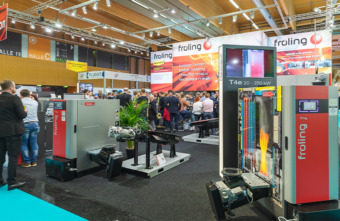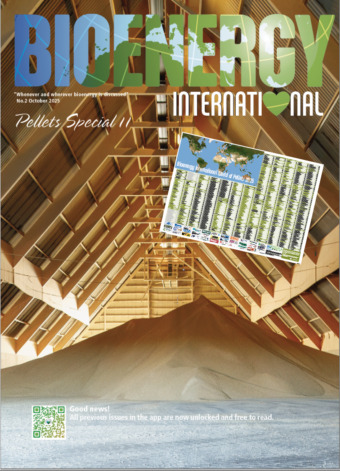Austria is the ninth EU Member State to celebrate its National Bioenergy Day on this year's listing of Bioenergy Europe's National Bioenergy Days. With 56 days November 3, 2024 marks the day on which Austria could begin relying on bioenergy for the rest of the year.
The European Bioenergy Day campaign aims to shed light on the increasingly central role that sustainable biomass is playing in the EU’s energy transition.
According to Bioenergy Europe, bioenergy is a vital component of the EU’s energy system and economy, producing 85 percent of the EU’s renewable heat, representing alone one-third of renewable energy sector jobs, and saving enough carbon dioxide (CO2) emissions to cover the annual emissions of Spain.
Awareness campaign
The campaign provides key facts on biomass and the bioenergy industry and celebrates people, projects, and companies contributing to achieving European carbon neutrality.
In the past years, Bioenergy Europe launched the European Bioenergy Day campaign to provide tangible, first-hand examples of how bioenergy impacts the lives of EU citizens.
Facts
Background European Bioenergy Day

First launched in 2018, the European Bioenergy Day campaign is powered by Bioenergy Europe and relayed across Europe by both national and international partners supporting the belief that bioenergy is more than a renewable energy source, but a reliable path that will lead Europe to achieve its renewable energy transition.
Each year, Bioenergy Europe calculates the Bioenergy Day of the European Union (EU) and each Member State, showing how long a Member State or the EU could meet their energy needs using only bioenergy until the end of the year.
Every National Bioenergy Day is accompanied by a story, showcasing the impact of bioenergy in the EU, whereas the European Bioenergy Day is highlighted at the annual European Bioenergy Future conference.
This year’s motto is “Our Shared Steps Towards the Energy Transition” and the 2024 European Bioenergy Day campaign aims to share these stories, highlighting how bioenergy supports the local (bio)economy, fosters innovation, and boosts the EU’s competitiveness.

As the EU advances towards its climate goals, bioenergy continues to expand its role as a key ally in the transition.
The new EU mandate will address critical issues such as climate change, energy security, and the rising cost of living.
In this context, bioenergy is a key ally for the EU’s economy, sustainability, and energy security.
It offers a viable alternative to fossil fuels and it is a key player in carbon dioxide removal (CDR) technology thanks to bioenergy with carbon capture and storage (BECCS), and biochar through pyrolysis with carbon capture and storage (PyCCS).
A leader in bioenergy and bioheat technology

In Austria, bioenergy production exceeds consumption. Woody biomass, such as fuelwood, woodchips, bark, and wood pellets, generates almost 40 percent of domestic energy and meets more than 14 percent of the country’s total energy demand.
According to the Austrian Biomass Association (ÖMBV), Austria could almost double its use of biomass for energy, from around 13 million tonnes to up to 24 million tonnes.
A recent publication “Active Forest Conversion: Use Wood, protect the Climate” shows that wood stocks in Austria are among the highest in the world, not despite but because of sustainable forest management (SFM), and that there is little room to increase stocks much further.

A striking feature is that Upper Austria, one of the country’s nine regions, is a major exporter of automated bioenergy boilers for residential- and commercial space heating.
Over 25 percent of biomass-fired heating appliances sold in the EU are made by companies based in the region while 35 percent of all dwellings are heated with pellets or biomass-fired district heating according to OÖ Energiesparverband, the regional energy agency.
According to Bioenergy International’s World of Pellets Map 2024, Austria had 53 wood pellet plants operational in 2023 with a total installed capacity of just over 2.4 million tonnes, of which 46 plants (≈ 2.3 million tonnes) were ENplus certified.



